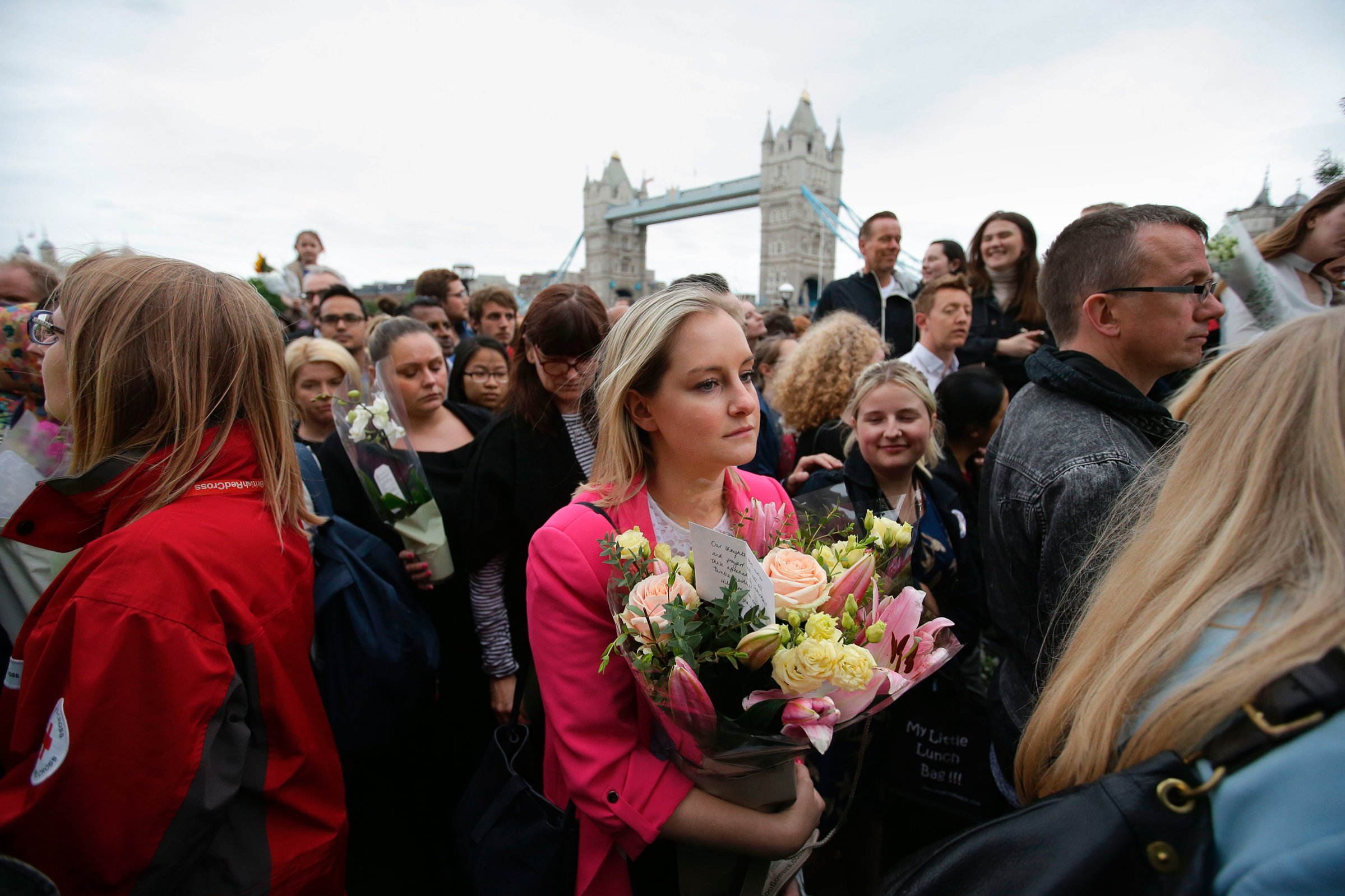
Every weekend, Borough Market fills with Londoners and tourists eager to stock up on everything from Italian licorice and Egyptian koshari to Caribbean spices and Balkan pastries. It’s a hub for food lovers, where languages and smells dance upon the air.
On June 3, three men ran amok here. In eight minutes they killed eight people, by vehicle on London Bridge and with knives inside the market, before armed police brought them down. The victims were British, Australian, Canadian, Spanish, French–and Londoners. It was an assault on the heart of an international city, where a third of nearly 9 million residents come from overseas.
The attackers were Londoners too. One previously worked for the city’s transit authority, an East Londoner born in Pakistan. Another was a son of an Italian and a Moroccan, and had reportedly done seasonal work in a restaurant here.
But they weren’t the Londoners we were talking about after the attacks, in our offices and pubs. Instead, we preferred to toast the unknown man photographed fleeing the terror with a full pint glass in his hand and a drunken grin on his face. To marvel at the soccer fan stabbed eight times as he set upon the attackers outside a Borough Market pub, shouting the name of his London team. To mourn the nurse who lost her life running toward the mayhem on London Bridge instead of away from it, to help others.
I wrote recently in TIME that the attack that killed 22 people in Manchester on May 22 came at a turning point for the United Kingdom, at a moment when we’re trying to figure out what kind of country we want to become–not just in the flash heat of the June 8 general election, but in the rising temperature of our departure from the E.U., due in 2019.
London stands at the same crossroads. Having overwhelmingly voted to remain within the E.U. in 2016, it is now preparing to leave it along with the rest of the country. Led by Mayor Sadiq Khan–a Londoner of Pakistani heritage, and a practicing Muslim–it is striving to remain a city the world can call home.
That challenge isn’t simply one of access to financial markets and skilled workers. London is staggeringly unaffordable to all but the upper middle class, and its housing shortage has driven young people away into the suburbs. The average house price in the capital has risen 421% since 1997, compared with a 74% increase in median salary. Over 2 million of us live under the poverty line, many in East London boroughs like Barking and Dagenham, and Newham, where one of the London Bridge attackers lived. Inequality of income and opportunity has bred anger and distrust, and worse.
But to see what binds us together, just look to what these attacks have revealed about the kind of country we are and the type of people who live in the cities we have built for ourselves. We are unshakably resolute, unwilling to give in to fear or panic and reliably able to find humor and kinship even in the darkest moments.
It’s clear that changes will come–especially in how we defend ourselves from what Prime Minister Theresa May on June 4 described as a “new trend” of threat after three terrorist attacks in the space of three months. We in Britain will need to demand answers of ourselves on the question of what turns young men to these acts of hatred. We may not like what we find.
But nevertheless that spirit will endure, beyond political seasons and despite what attacks may yet come. And before the summer is done, Borough Market will again surge with foodies, tipplers and globetrotters seeking a taste of something new.
More Must-Reads from TIME
- Donald Trump Is TIME's 2024 Person of the Year
- Why We Chose Trump as Person of the Year
- Is Intermittent Fasting Good or Bad for You?
- The 100 Must-Read Books of 2024
- The 20 Best Christmas TV Episodes
- Column: If Optimism Feels Ridiculous Now, Try Hope
- The Future of Climate Action Is Trade Policy
- Merle Bombardieri Is Helping People Make the Baby Decision
Contact us at letters@time.com